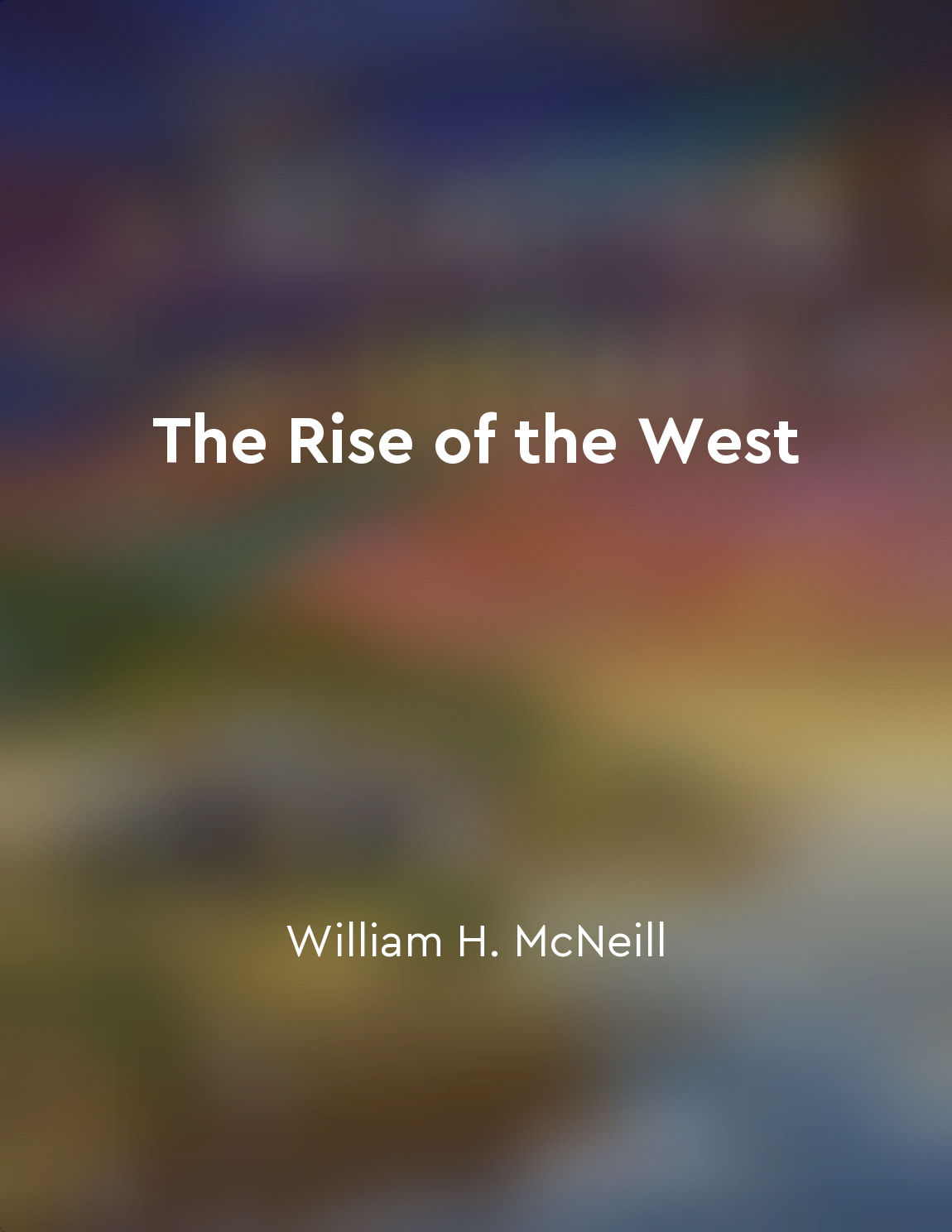Social structures evolve with technological advancements from "summary" of The Rise of the West by William H. McNeill
The interplay between technology and social structures has been an enduring theme in human history. Technological advancements have often been the catalysts for profound changes in the way societies are organized and structured. As societies develop new technologies, they inevitably alter the way people interact with each other and with their environment. In his book 'The Rise of the West', William H. McNeill explores how technological advancements have shaped the evolution of social structures in Western civilization. From the invention of the wheel to the Industrial Revolution, technology has played a central role in driving social change and shaping the course of history. McNeill argues that technological innovations have not only transformed the material conditions of life but have also had far-reaching implications for social organization and political power dynamics. One of the key insights of McNeill's work is that technological advancements have a ripple effect on social structures, leading to changes in economic systems, political institutions, and cultural norms. For example, the advent of agriculture enabled the rise of complex civilizations with hierarchical social structures, centralized governments, and specialized labor roles. Similarly, the invention of the printing press in the 15th century revolutionized communication and knowledge dissemination, leading to the spread of new ideas and the emergence of modern nation-states. McNeill also highlights the reciprocal nature of the relationship between technology and social structures. While technological advancements drive social change, social structures, in turn, shape the direction and impact of technological innovations. For instance, the rise of capitalism in Western Europe during the early modern period fueled the development of new technologies and industries, which, in turn, reinforced the power dynamics of the emerging capitalist societies.- McNeill's analysis underscores the dynamic and complex interplay between technology and social structures in shaping the course of history. By examining how technological advancements have influenced the evolution of social organizations and power dynamics in Western civilization, 'The Rise of the West' offers valuable insights into the ways in which societies adapt and evolve in response to technological change.


